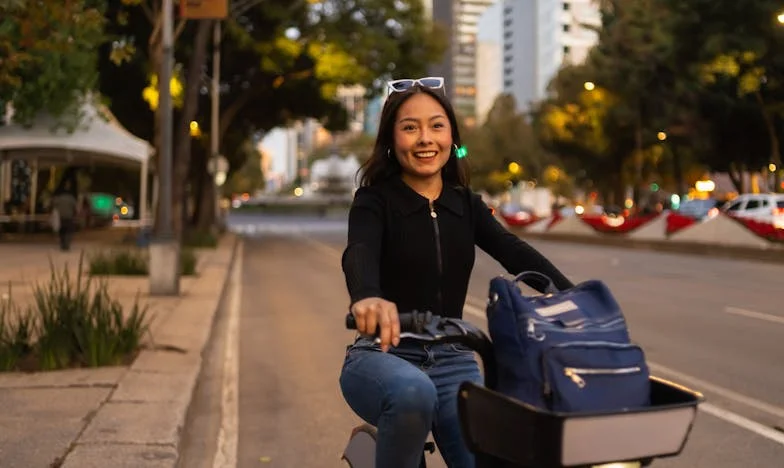“Don’t Come to My Wedding, Dad—Everyone There Will Be Rich”: A Father’s Heartbreak in Suburbia
“Dad, I’m begging you—please don’t come to the wedding.”
Her voice shook, but her eyes were steady, and I felt my world tilt. My hands, rough and calloused from years as a mechanic, trembled as I gripped the edge of our old kitchen table. The same table where I’d bandaged her scraped knees, where I’d sat up with her on stormy nights, promising things would get better. Now, she couldn’t even look me in the eye.
“Jessie,” I said, my voice cracking, “I don’t understand. You’re my daughter. I’m your father. Why wouldn’t I be there on your big day?”
She swallowed hard, her expensive manicure flashing under the fluorescent light. “Dad, it’s just… It’s not like before. You know how important this is for me. Adam’s family—they’re not like us. They’re all doctors, lawyers, people who went to Ivy League schools. The wedding is at his parents’ country club. I just…” She hesitated, biting her lip. “I just don’t want you to feel uncomfortable.”
Uncomfortable. Was that all I’d ever been to her? The blue-collar dad who worked double shifts, who packed her PB&Js for lunch when everyone else was eating sushi or fancy wraps? The guy who shopped at Walmart, who drove a rusty old Ford pickup, who never once missed a parent-teacher conference?
It wasn’t supposed to be like this. When my wife, Laura, died suddenly from a stroke, Jessie was only eight. I’d just turned thirty-three, and the grief nearly swallowed me. But I had Jessie. She was my anchor, my reason to keep breathing. I sold my dream of opening my own garage and took every job I could to keep her in our little house on the edge of town. I never remarried. All my love and every cent I earned went to her.
I watched her grow, sometimes awkward, always brilliant. She got a scholarship to Northwestern—God, how proud I was. I remember her calling, voice brimming with excitement: “Dad! I got in! Can you believe it?” I could, because I’d seen her work for it. But college changed her. She stopped coming home for spring break, then for Thanksgiving. She started talking about things I didn’t understand—brunches, internships, networking events. I tried to keep up, but it felt like she was moving forward, and I was stuck in place.
After graduation, she moved to Chicago, then to New York. She met Adam at a tech conference. I heard about him through carefully worded phone calls. “He’s nice, Dad. Really smart. His family’s really… established.”
We met once, at a fancy restaurant. Adam shook my hand with a polite smile, said all the right things. His parents barely looked at me, except to ask where I was from. I tried to fit in, but every word felt wrong, every gesture clumsy. Jessie watched me the whole time, her cheeks pink with embarrassment. I pretended not to notice.
Now, as she sat across from me, I realized she’d made her choice. She wanted their world, not mine. The wedding invite never came.
“Jessie,” I whispered, “I changed your diapers. I taught you how to ride a bike. I worked myself to the bone so you could have a better life. And now you’re ashamed of me?”
She flinched. “I’m not ashamed, Dad! I just… I don’t want people judging you. I—Adam’s family, they’re just different. That’s all.”
“Different doesn’t mean better,” I said, my heart breaking. “You can’t erase where you came from.”
She stood up, blinking back tears. “I’m sorry, Dad. I can’t do this.” She left, her heels clicking on the worn linoleum.
The house was silent. I sat there for hours, remembering the first time I held her in my arms. The weight of her tiny body. The promise I’d made to Laura’s memory: that I’d give Jessie everything. I’d kept that promise, but somewhere along the way, I’d lost her.
I didn’t go to the wedding. I watched the photos appear on Facebook, friends tagging her in shots with Adam’s family, all perfect smiles and champagne flutes. There was no trace of me—not even a mention. People called to ask if I was okay. I lied. “Of course. Just a little under the weather.”
For weeks, I wandered the house, picking up her old soccer trophies, the faded drawings on the fridge. I replayed every sacrifice, every late night, every birthday party I threw together with nothing but dollar-store decorations and love. Was it all for nothing? Did giving her the world mean losing her to it?
One night, she called. I almost didn’t answer.
“Dad, I’m sorry,” she said, voice small. “I thought I was protecting you, but maybe I was just protecting myself. I miss you. Can we talk?”
I wanted to scream, to tell her how deeply she’d hurt me. But she was still my little girl, and I loved her. We talked for hours. About Adam, about life, about how scary it is to feel like you don’t belong anywhere. She cried, and I cried. We started to find our way back, slowly, awkwardly—phone calls, then visits, then shared Sunday breakfasts at a diner. I met Adam again, and this time, I saw not a stranger, but a man who loved my daughter, flaws and all.
But the ache never really leaves. Sometimes I wonder if the American dream—the idea that you can rise above your roots—comes with a terrible cost.
Did I do the right thing? Can you really give your child everything and still keep their heart? What would you have done in my place?
